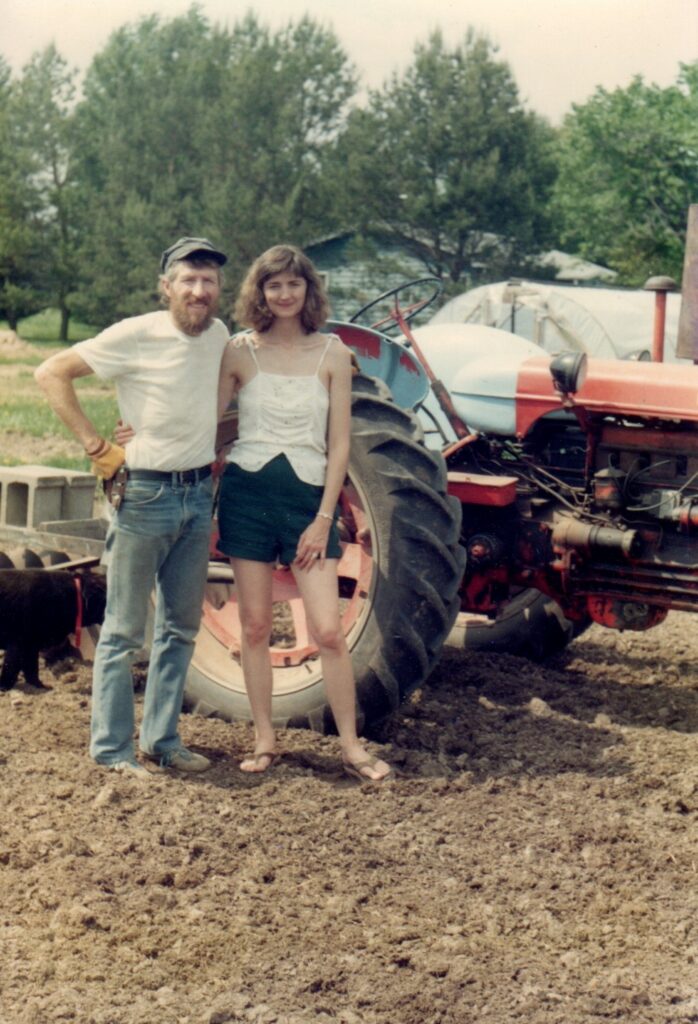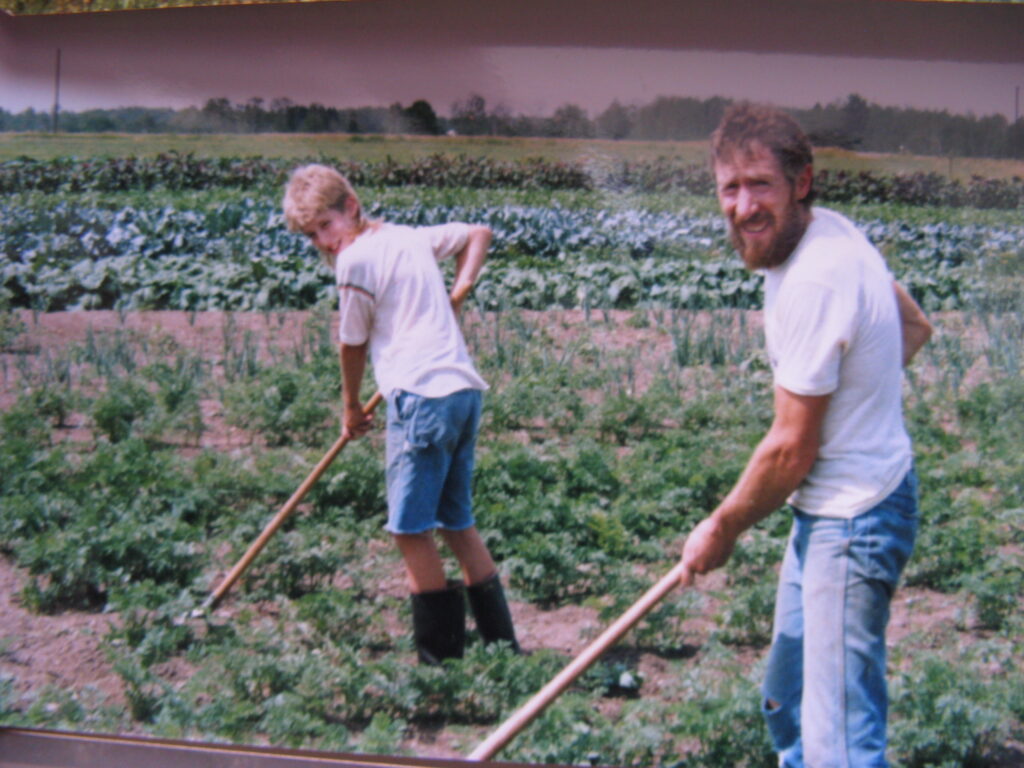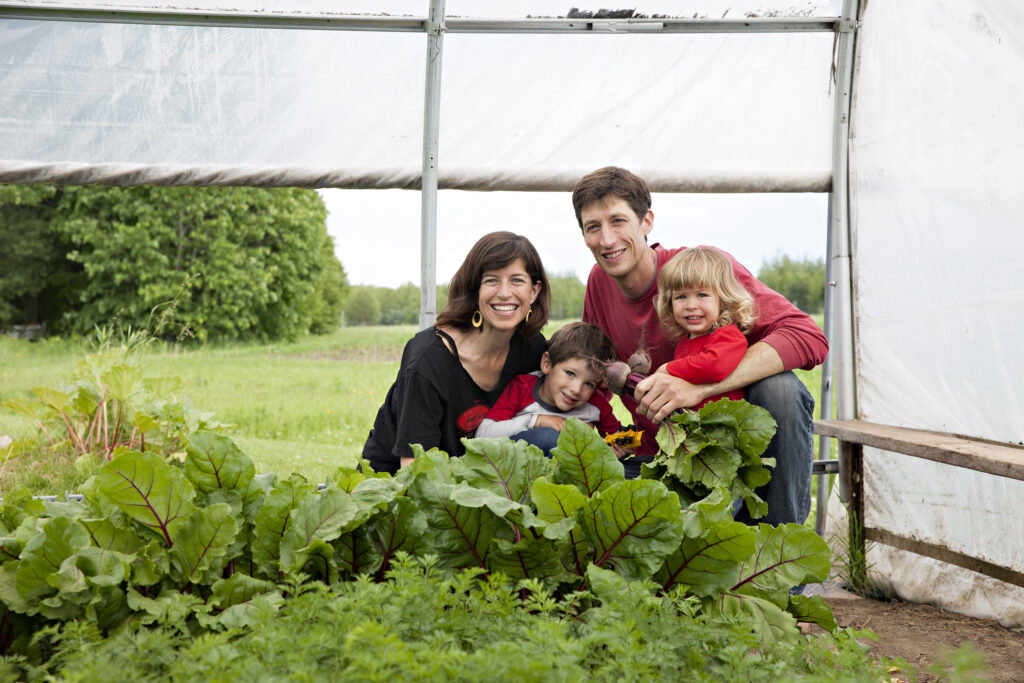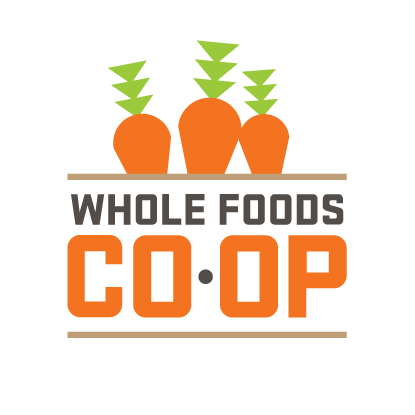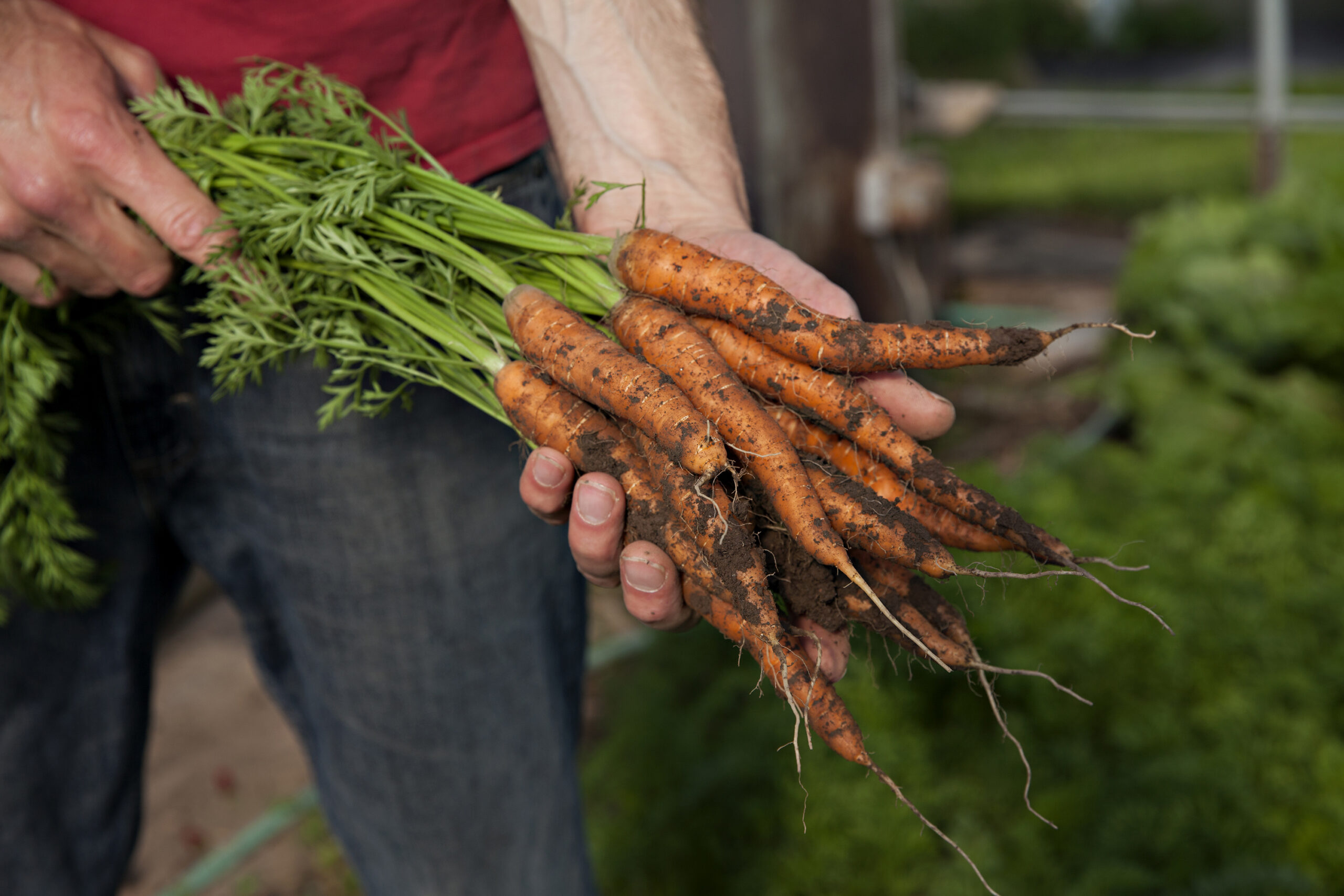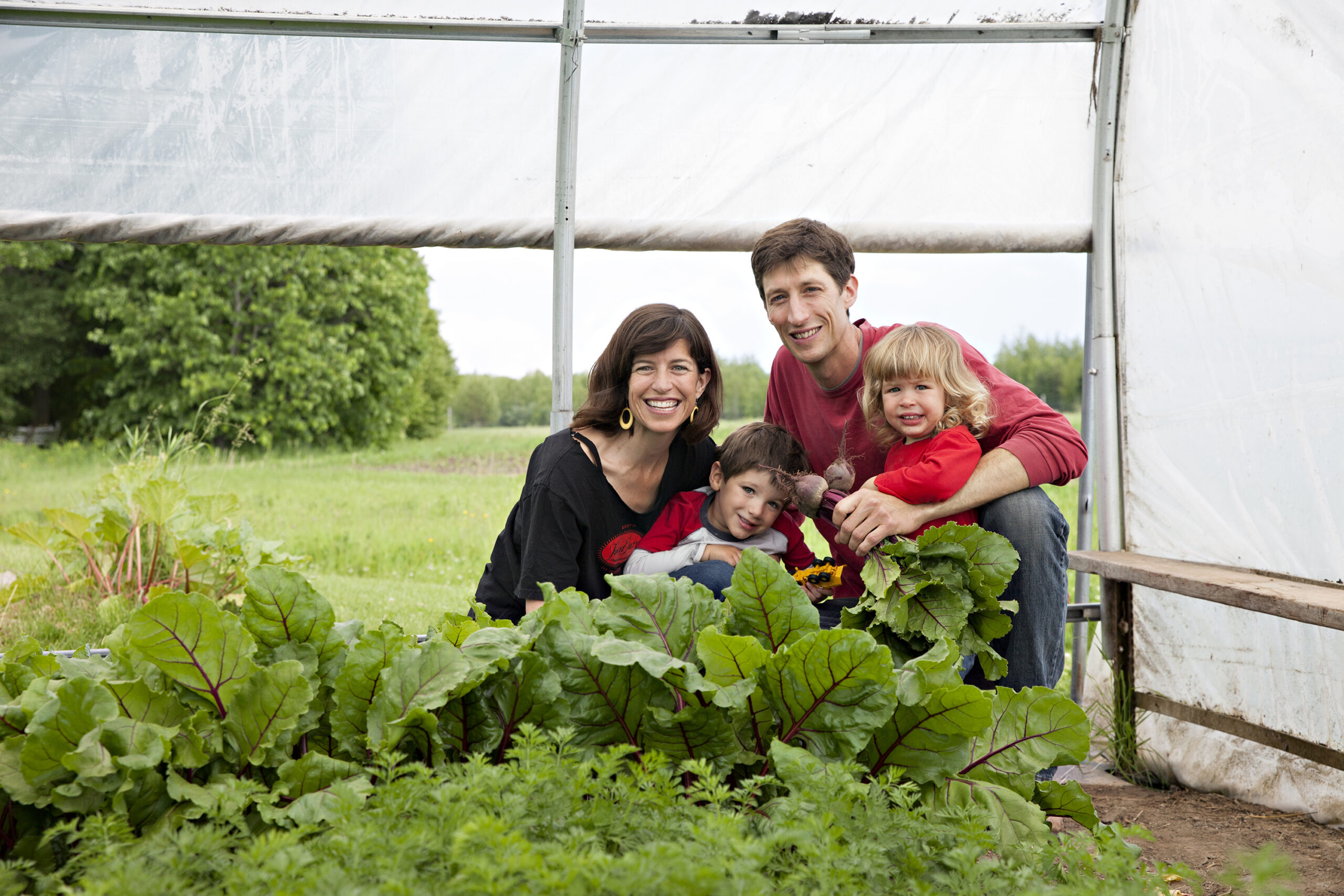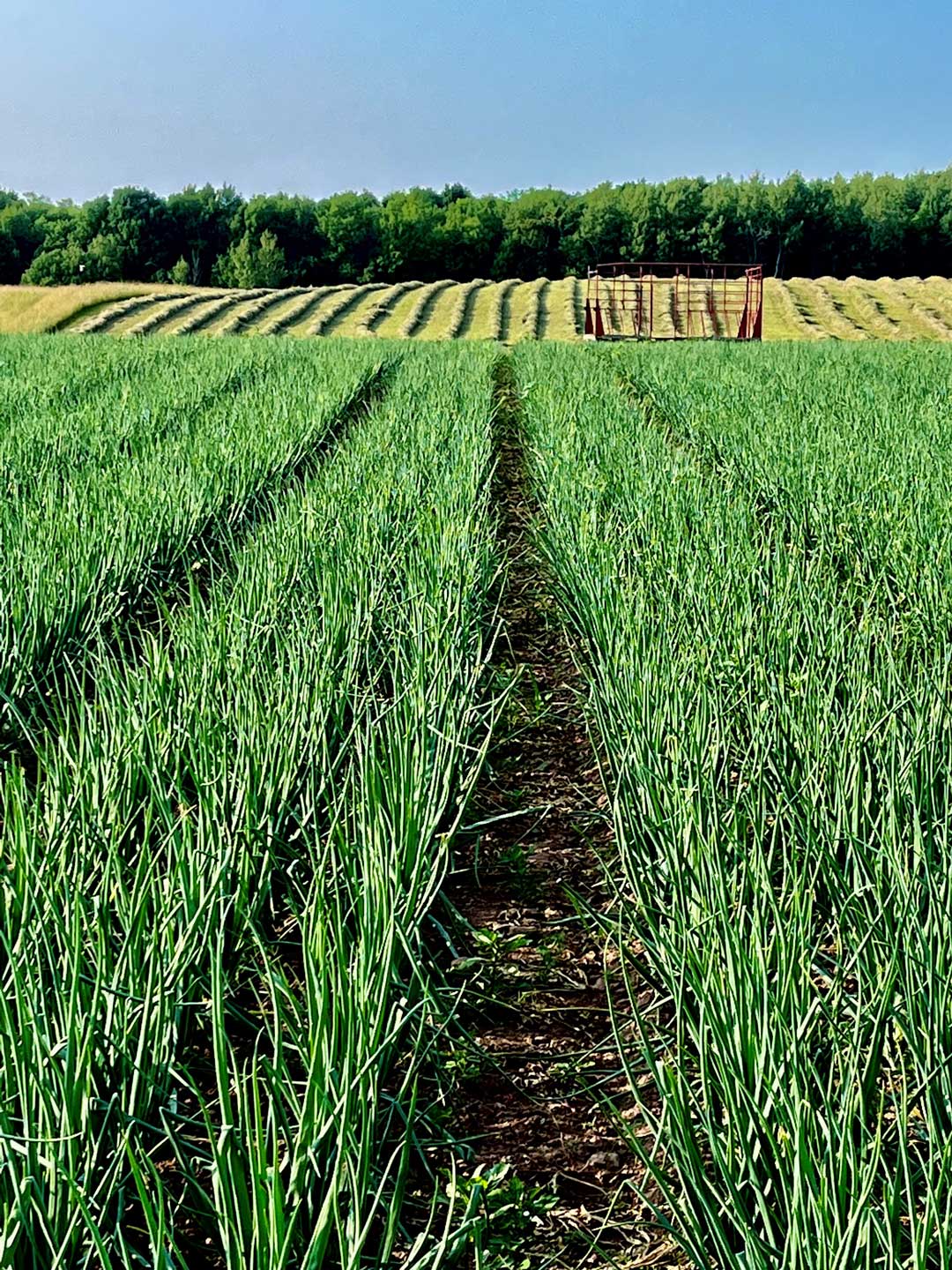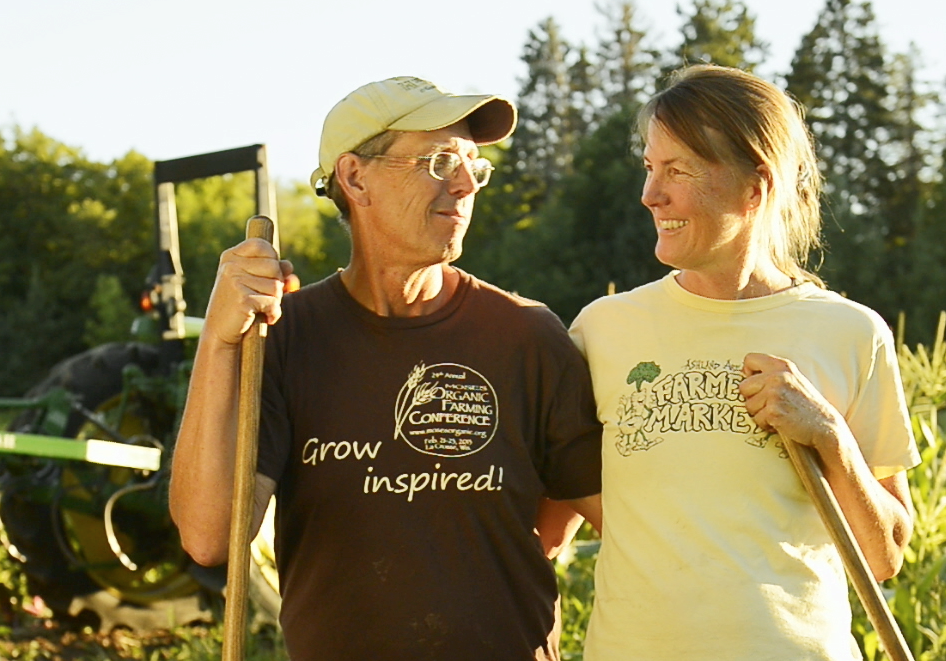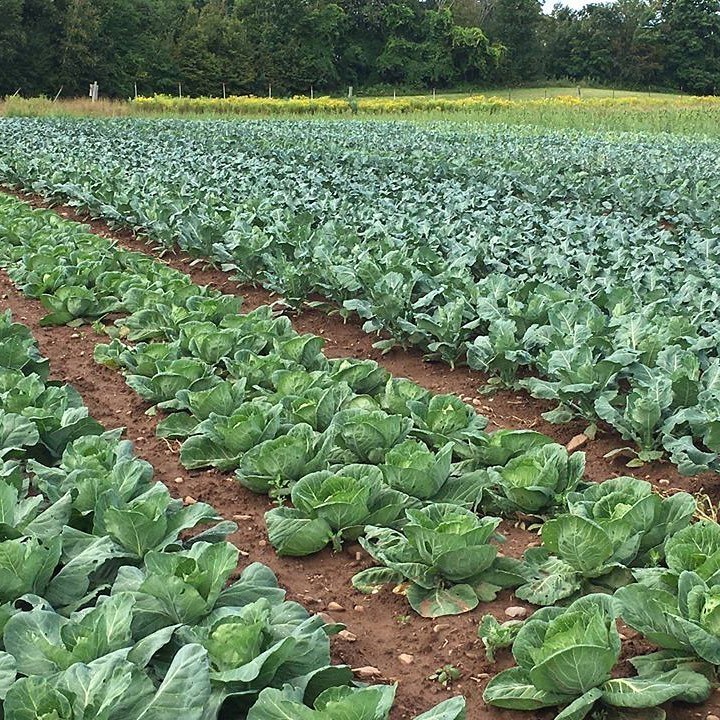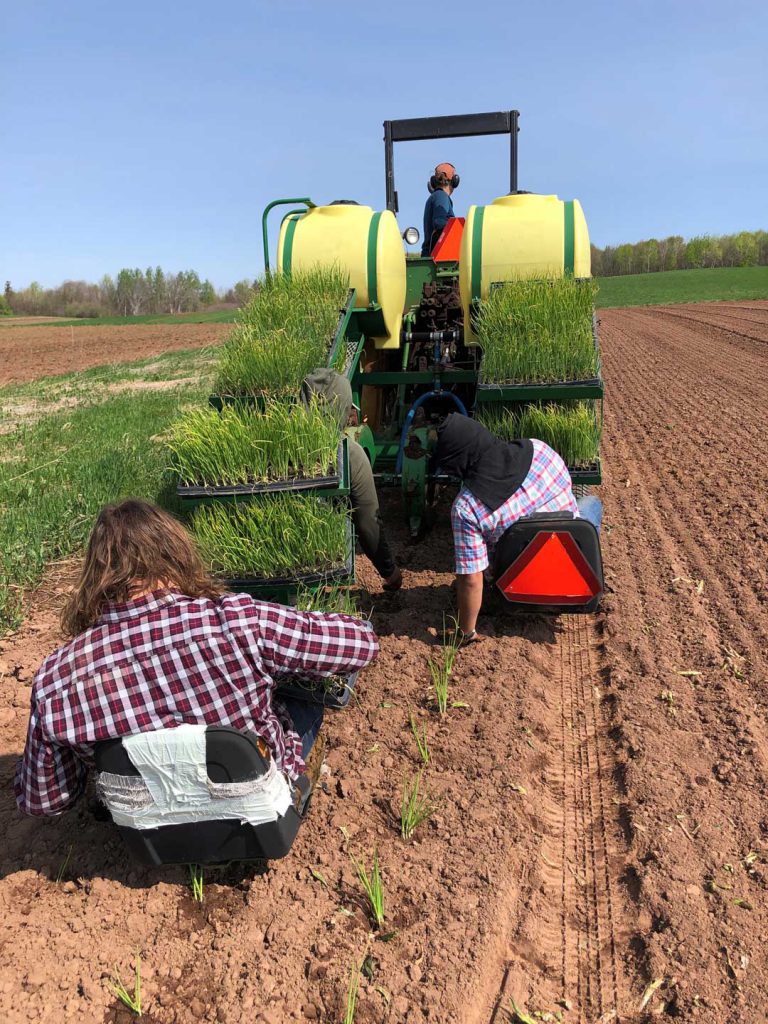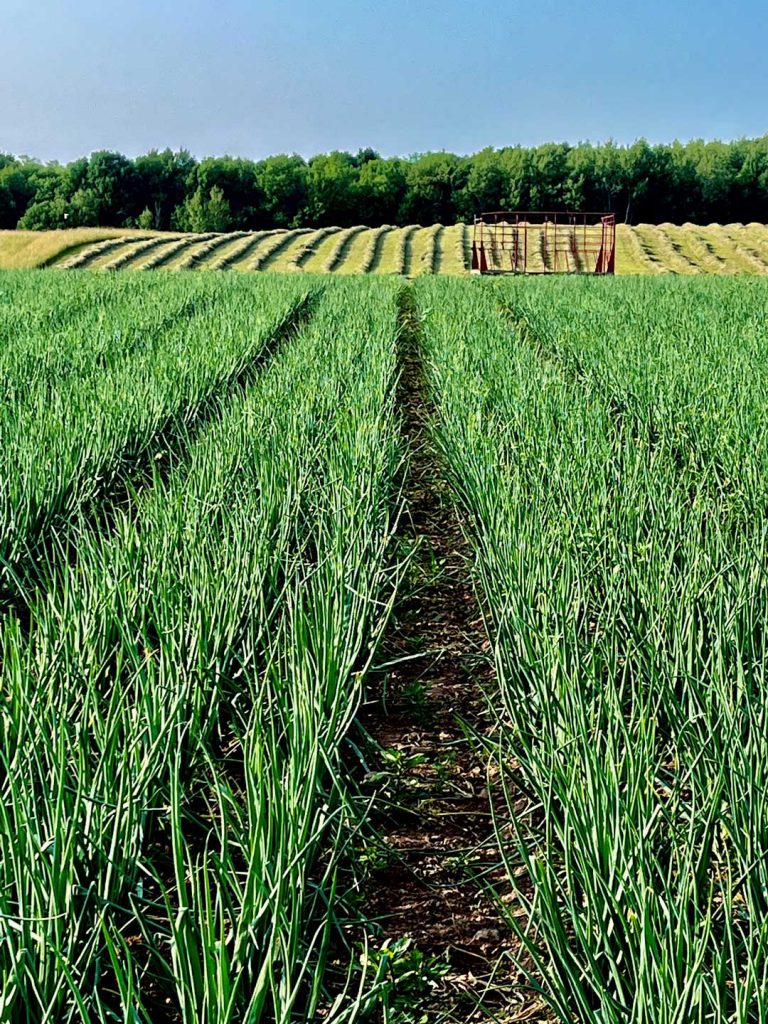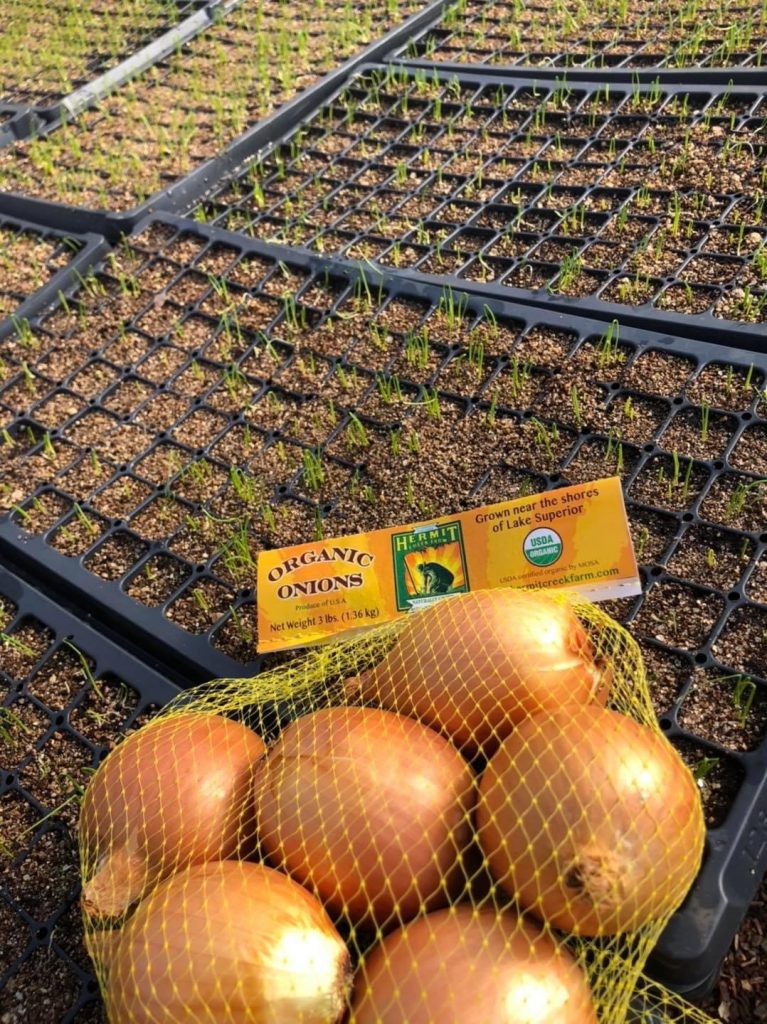a journey through Food Farm’s Inspiring History
Imagine a late summer’s day in August, where the morning rain has quenched the thirst of the soil, leaving glistening beads of water on lush produce greens. The fields hum with life as the broccoli and carrots, nurtured since early plantings, stand ready for harvest. Around the kitchen table, John, Janaki, and Dave gather, ready to weave a tapestry of stories that span five decades – stories of trials, triumphs, and transformation – stories that form the heart of Food Farm’s rich history.
The narrative begins in the fall of 1975 when John and Jane Fisher-Merritt found themselves dreaming of a life intertwined with the land. Inspired by a back-to-the-land ethos and Wendell Berry’s “The Unsettling of America,” they left Oregon behind and arrived at Holyoke, Minnesota, a homestead John lovingly dubbed a “hippie hideaway in the woods.” The early years were marked by humble beginnings, laying the stepping stones for what would eventually become Food Farm. Picture large broccoli crowns, carefully piled high in ice-laden turkey roasters, destined for sale on consignment. Envision ripe red tomatoes fetching a mere 10 cents per pound, with a seasonal harvest yield of about 1500 lbs. Those stories and memories of the devastating 1976 Holyoke house fire couldn’t extinguish the will to arise from the ashes. The Fisher-Merritts would make lemonade from lemons and salvage materials from the fire that would later become part of their new home’s porch, where Food Farm currently stands in Wrenshall, Minnesota.
John’s voice resonates, “We moved from Holyoke to Wrenshall in 1988, guided by UMD Extension soil mapping insights.” It was here that the Fisher-Merritts could fully embrace the radical notion of organic farming. In a landscape dominated by industrial agriculture, their commitment to growing healthy food in harmony with nature’s rhythms was nothing short of revolutionary. Their dedication to living this way and to the Lake Superior region laid the foundation for Food Farm’s future.
Dave Hanlon, a steadfast presence for over 30 years, brings to life tales of John’s creativity and maverick spirit. Imagine the experimental construction of a hoop house – salvaged conduit bent with the weight of a tractor, shaped by ingenious curves. Another thread in the tapestry of resourcefulness and unwavering persistence.
By 1990, their dedication bore fruit, earning them certified organic status. This recognition solidified their commitment, established their leadership in the local organic food movement, and set the stage for their pioneering Community Supported Agriculture (CSA) venture. Janaki’s voice adds depth, “In the 20 years my folks had been farming, they hadn’t paid themselves a wage. We had a farm-direct arrangement called a Clientele Membership Club where people could come pick food at the farm for a lower price than retail.” The shift to a CSA format was a natural progression, offering a consistent income source for the Fisher-Merritt family. In 1994, the CSA and the name “Food Farm” were officially adopted. On the farm name, Janaki said, “The farm never had a name until we started the CSA—produce signs at the Co-op always just read “John’s” because everybody knew who he was, and he had worked at the Co-op since 1976. We chose the name Food Farm because producing basic sustenance for a community of people is actually very unusual in agriculture today.” In the late 90s and early 2000s, Food Farm extended its roots and values, fostering new farms in the Northland through mentorships, including relationships with Rick and Karola Dalen of Northern Harvest Farm and others.
Fast forward to 2010, when Janaki and his partner Annie Dugan assumed leadership, steering Food Farm towards new horizons. Their stewardship saw the completion of the root cellar in 2016, an embodiment of their commitment to preserving freshness with minimal inputs in Minnesota’s harsh climate.
As time moves forward, Food Farm – now tended by Janaki, John, Dave Hanlon, Teri Sackmeister, and their dedicated seasonal team – thrives. As boxes brimming with fresh bagged carrots are prepared for Co-op delivery, Dave, Janaki, and John intertwine their stories with the laughter of the next generation of Fisher-Merritts and friends just outside in the yard. Food Farm and the Co-op take great pride in nurturing and strengthening our enduring partnership between each other and the community. Since that inaugural delivery of tomatoes in 1976, Food Farm and the Co-op’s journeys have seen parallels of growth. Bringing local, organic food to the Northland is a remarkable achievement, considering our short growing season. Food Farm stands as an emblem of the enduring bond between land and community in a world that hurtles forward. Each harvest, each farmer uplifted through their mentorship, speaks to this timeless connection.
Today, John and Jane’s presence continues to grace the farm, offering support when needed. John imparts wisdom through farm tours and supports new growers, extending his knowledge to programs like the Fond du Lac Tribal & Community College Bimaaji’idiwn Extension Producer Training Program in Cloquet. As Janaki eloquently concludes, “In many ways, the commitment to continuous improvement and the desire to deepen our understanding of the land and the practices that support its productivity are more important than the milestones.” Through their story, we find inspiration to strengthen our relationship with the land and with each other.
